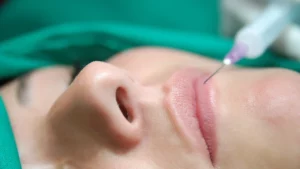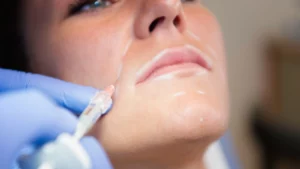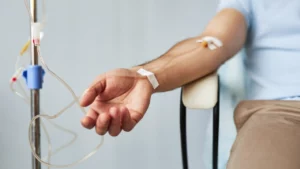Table of Contents
Acne is a common skin condition that affects individuals of all ages, but it is particularly prevalent during the teenage years. Characterized by pimples, blackheads, and whiteheads, acne can significantly impact a teenager’s self-esteem and confidence. In this blog, we’ll delve into the reasons behind teenage acne and explore practical strategies for managing and treating this frustrating condition.
Why Does Teenage Acne Happen?
Several factors contribute to the development of acne during adolescence:
- Hormonal Changes: Fluctuations in hormone levels, particularly an increase in androgens, can lead to excess oil production in the skin. This oil, along with dead skin cells, can clog pores and contribute to the formation of acne lesions.
- Clogged Pores: When pores become clogged with oil, bacteria, and dead skin cells, it creates an ideal environment for acne to develop. This can result in the formation of whiteheads, blackheads, and pimples.
- Genetics: A family history of acne can increase an individual’s likelihood of developing the condition. Genetic factors can influence skin type, oil production, and susceptibility to acne-causing bacteria.
- Diet and Lifestyle: While diet alone is not a direct cause of acne, certain foods high in sugar and carbohydrates can exacerbate inflammation in the body, potentially worsening acne symptoms.
How to Handle Teenage Acne
While teenage acne can be frustrating, several strategies can help manage and alleviate symptoms:

- Establish a Consistent Skincare Routine: Encourage teenagers to cleanse their face twice daily using a gentle cleanser to remove excess oil, dirt, and bacteria. It’s important to avoid harsh scrubbing, as this can irritate the skin and worsen acne.
- Use Non-Comedogenic Products: Look for skincare and makeup products labeled as non-comedogenic, meaning they won’t clog pores. This can help prevent the formation of new acne lesions.
- Avoid Touching or Picking at the Skin: Encourage teenagers to resist the urge to touch or pick at their acne lesions, as this can introduce bacteria and lead to further inflammation and scarring.
- Maintain a Healthy Diet: While there is no specific “acne diet,” encourage teenagers to consume a balanced diet rich in fruits, vegetables, whole grains, and lean proteins.
- Consider Over-the-Counter Treatments: Over-the-counter acne treatments containing ingredients like benzoyl peroxide, salicylic acid, or sulfur can be effective for mild to moderate acne. These products help unclog pores and reduce acne-causing bacteria.
- Seek Professional Treatment: For more severe or persistent acne, it’s essential to consult a dermatologist. They can prescribe medications such as topical retinoids, oral antibiotics, or hormonal treatments to help control acne and prevent scarring.
Conclusion
Teenage acne can be a challenging condition to navigate, but with the right approach, it is manageable. By understanding the underlying causes of acne and implementing effective skincare habits and treatments, teenagers can achieve clearer, healthier skin and boost their self-confidence during this critical stage of development. If you or your teenager are struggling with acne, don’t hesitate to seek professional advice in Isya Aesthetics and support from a dermatologist.







